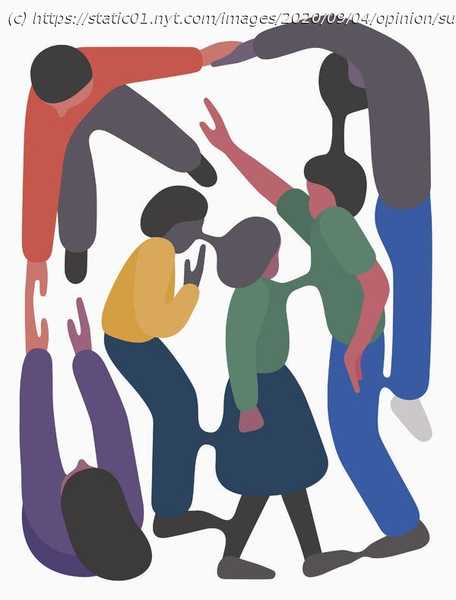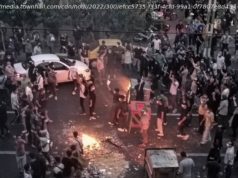Can we really be taught to feel each other’s pain?
When my daughter started remote kindergarten last month, the schedule sent to parents included more than reading, math, art and other traditional subjects. She’ll also have sessions devoted to “social and emotional learning.” Themes range from listening skills and reading nonverbal cues to how to spot and defuse bullying. As millions of students start the school year at home, staring at glowing tablets, families worry that they will miss out on the intangible lessons in mutual understanding that come with spending hours a day with kids and adults outside their own household. We want children to grasp perspectives of people different from themselves. Yet in recent years, empathy — whether we can achieve it; whether it does the good we think — has become a vexed topic. While teachers attempt to teach empathy through screens, the national context has become complicated in the months since the police killing of George Floyd. “Because our white leaders lack compassion and empathy, Black people continue to die,” wrote a columnist in The Chicago Sun-Times. When Joe Biden posted a video declaring that “the pain is too intense for one community to bear alone,” journalists called the message an effort to “project empathy” — while activists said empathy was not enough. At the Republican National Convention, Ja’Ron Smith, a deputy assistant to President Trump, assured the audience that the president is empathizer in chief. “I just wish everyone would see the deep empathy he shows the families whose loved ones were killed due to senseless violence,” Mr. Smith said. Few would quarrel with a kindergarten teacher’s noble efforts to teach listening skills to 5-year-olds. But as my daughter and her classmates get older, they will run into thornier dilemmas, our era’s version of old questions: Are some divides too great for common humanity to bridge? When we attempt to step into the shoes of those very different from us, do we do more harm than good? At the same time, trends in American education have worked at cross-purposes, nurturing social and emotional learning in some ways, hampering it in others. Our capacity to see one another as fellow humans, to connect across differences, is the foundation of a liberal pluralist society. Yet skeptics say that what seems like empathy often may be another form of presumption, condescension or domination. In his 2016 book “Against Empathy,” the psychologist Paul Bloom argued that empathy can cloud rational judgment and skews toward people “who are close to us, those who are similar to us and those we see as more attractive or vulnerable and less scary.” The scholar and activist bell hooks put the matter more starkly. White desire to feel Black experience is predatory, exploitative, “eating the Other,” she wrote. It’s impossible to perfectly inhabit another person’s experience. The important question is the value of the effort, and whether it leaves us separated by an asymptote or a chasm. Can a straight TV writer create an authentic gay sitcom character? If an author of European descent writes a novel from the perspective of Indigenous people, is it an empathic journey, or an imperialist incursion? “I don’t want to throw out what empathy is trying to do,” Alisha Gaines, a professor of African-American literature at Florida State University, told me. “I’m very critical of it though. Empathy has to be considered in the context of institutions and power.” Ms. Gaines has devoted much of her scholarship to interrogating well-meaning white attempts at empathy for the Black experience, from the white journalist John Howard Griffin’s 1961 book “Black Like Me,” an account of his project to pass as a Black man on a trip through the Deep South, to a modern re-enactment of the Underground Railroad — whose organizers promised “empathy to the extreme,.” Ms. Gaines said: “If for 90 minutes I run around and look for the lantern in the window, what do I take from this into my everyday life? This is playing a slave, not an enslaved person. The humanity gets evacuated out of it.” Yet, as a literature professor, she wants students to see books as passageways to experiences unlike their own.






